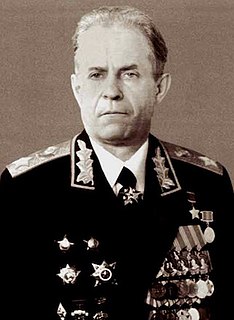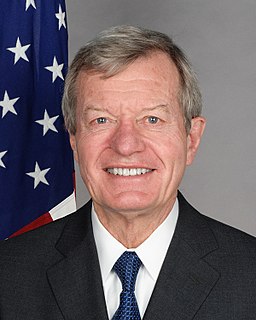A Quote by John F. Kennedy
The Kennedy Administration's public pronouncements on the matter suggested that the presence of Soviet nuclear missiles in Castro's Cuba would represent an unacceptable strategic threat to the United States. . . . This urgent transformation of Cuba into an important strategic base - by the presence of these large, long-range, and clearly offensive weapons of sudden mass-destruction - constitutes an explicit threat to the peace and security of all the Americas. . . .
Quote Topics
Administration
Base
Castro
Clearly
Cuba
Destruction
Explicit
Important
Kennedy
Large
Long
Mass
Matter
Missiles
Nuclear
Nuclear Missiles
Offensive
Peace
Peace And Security
Presence
Public
Range
Represent
Security
Soviet
States
Strategic
Sudden
Suggested
Threat
Transformation
Unacceptable
United
United States
Urgent
Weapons
Would
Related Quotes
Here's the truth: the Soviet Union had thousands of nuclear weapons, and Iran doesn't have a single one. But when the world was on the brink of nuclear holocaust, Kennedy talked to Khrushchev and he got those missiles out of Cuba. Why shouldn't we have the same courage and the confidence to talk to our enemies? That's what strong countries do, that's what strong presidents do, that's what I'll do when I'm president of the United States of America.
If you look at US internal documents, they explain very clearly what the threat of Cuba was. So, back in the early 1960s the State Department described the threat of Cuba as Castro's successful defiance of US policy, going back to the Monroe Doctrine. The Monroe Doctrine established the US claim to dominate the Western hemisphere and Castro was successfully defying that. That's not tolerable. It is like somebody saying "let's have democracy in Greece," and we just can't tolerate that so we have to destroy the threat at its roots.
Iraq both poses a continuing threat to the national security of the United States and international peace and security in the Persian Gulf region and remains in material and unacceptable breach of its international obligations by, among other things, continuing to possess and develop a significant chemical and biological weapons capability, actively seeking a nuclear weapons capability, and supporting and harboring terrorist organizations.
I believe the proliferation of weapons of mass destruction presents the greatest threat that the world has ever known. We are finding more and more countries who are acquiring technology - not only missile technology - and are developing chemical weapons and biological weapons capabilities to be used in theater and also on a long range basis. So I think that is perhaps the greatest threat that any of us will face in the coming years.
America has shown we are serious about removing the threat of weapons of mass destruction... We now know that Saddam Hussein had the capacity to produce weapons of mass destruction.... We know he had the necessary infrastructure because we found the labs and the dual-use facilities that could be used for these chemical and biological agents. We know that he was developing the delivery systems - ballistic missiles - that had been prohibited by the United Nations.
The aggressor too should know that the preemptive use of nuclear weapons would not insure victory. With modern detection systems and the combat readiness of the Soviet Union's strategic nuclear forces, the United States would not be able to deal a crippling blow to the socialist countries. The aggressor will not be able to evade an all-crushing retaliatory strike.
































